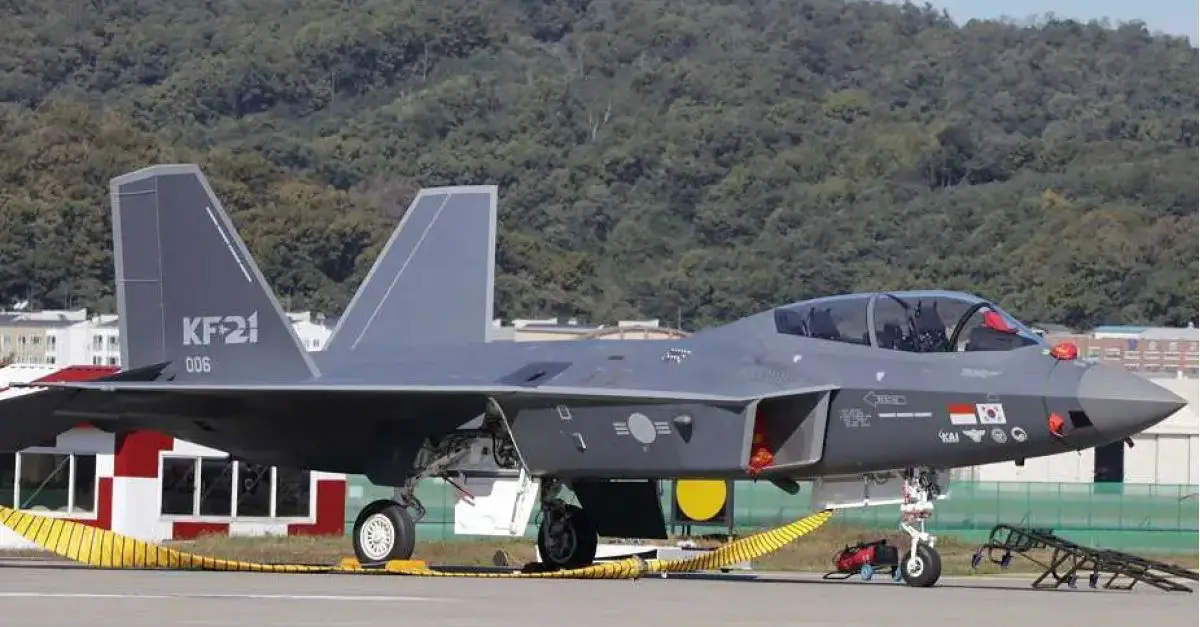Breaking news
South Korea Eyes Role in AUKUS Advanced Military Tech Development.
On May 1, 2024, Stars and Stripes reported that South Korean Defense Minister Shin Won-sik announced at a press conference that South Korea has initiated discussions to participate in the joint development of advanced military technologies under "Pillar 2" of the AUKUS defense pact, an agreement between the United States, the United Kingdom, and Australia. The foreign and defense ministers of South Korea and Australia met in Melbourne, Australia, for the sixth "two plus two" meeting of the defense and foreign ministers of the two countries.

South Korea KF-21 twin-seat fighter jet (Picture source: Army Recognition)
During the meeting, South Korean Defense Minister Shin Won-sik and Foreign Minister Cho Tae-yul discussed with Australian Foreign Minister Penny Wong and Deputy Prime Minister and Defense Minister Richard Marles. A joint statement adopted by the ministers indicated that the Republic of Korea "welcomed that the AUKUS countries are considering cooperation with additional partners on the advanced capability projects of Pillar II."
Richard Marles expressed optimism about the future of this technological collaboration. "We already work closely together in technology. Thus, as Pillar Two of AUKUS develops, I believe there will be opportunities in the future," he stated at a press conference immediately after the meeting.
AUKUS is divided into two main pillars: Pillar I, which involves providing nuclear submarine technology to Australia, and Pillar II, in which partner countries will work together on eight areas of development, including quantum technologies, undersea capabilities, hypersonic capabilities, artificial intelligence, and cyber capabilities.
Although AUKUS has indicated that it does not plan to share nuclear submarine technology with other countries, the group is considering adding Japan, Korea, Canada, and New Zealand as partners for Pillar II.
Korea's participation in AUKUS, even if it does not represent a direct channel of military exchange, would be significant as it would symbolize active participation in the security network that the United States is building. Previously, the United States adopted a hub-and-spoke strategy by forging bilateral alliances centered on the United States. More recently, they have built a security network of various "minilateral" partnerships, including the Quadrilateral Security Dialogue (between the United States, Japan, Australia, and India), AUKUS, trilateral cooperation with South Korea and Japan, and trilateral cooperation with Japan and the Philippines.
Nevertheless, for Korea, joining this US-led security structure ultimately means participating in the containment of China. Indeed, cross-strait relations were mentioned in the joint statement of Korea and Australia, which emphasized the importance of "preserving peace and stability across the Taiwan Strait as an indispensable element of security and prosperity in the region."
Experts say that even if Korea joins the US-led security arrangement, it will still need to manage relations with China. "AUKUS is at the heart of the network that the United States envisions, so I think that Korea joining that arrangement is a good plan in terms of national security. That said, we need to come up with logical arguments that the Chinese will find persuasive and hold strategic dialogue with them," said Lee Baek-soon, who formerly served as Korea’s ambassador to Australia.
While Australian Prime Minister Anthony Albanese clarified that adding new collaborators to Pillar 2 would not mean an expansion of the formal membership of AUKUS, the Chinese Ministry of Defense expressed its opposition to these extensions, considering them factors of regional destabilization.
China has criticized the formation of exclusive groups targeting the country, considering AUKUS as the beginning of an "Asian NATO" and a potential source of geopolitical confrontation. The Chinese Ministry of Defense has called for an Indo-Pacific region oriented towards peace and development, rather than geopolitical competition.
The United States is considering easing licensing requirements for the transfer of military equipment and sensitive technologies to AUKUS partners, although these regulations may pose additional challenges for South Korea and Japan in protecting their national and economic secrets. Formal consultations on the participation of South Korea, Japan, and other countries in Pillar II projects are expected to begin later this year, with a focus on technological innovation and its impact on regional peace and stability.


























